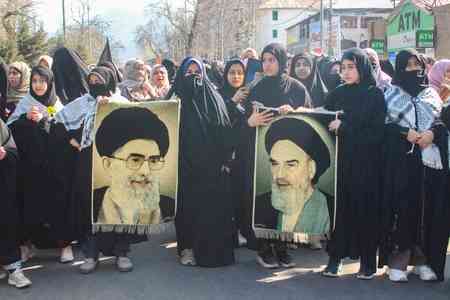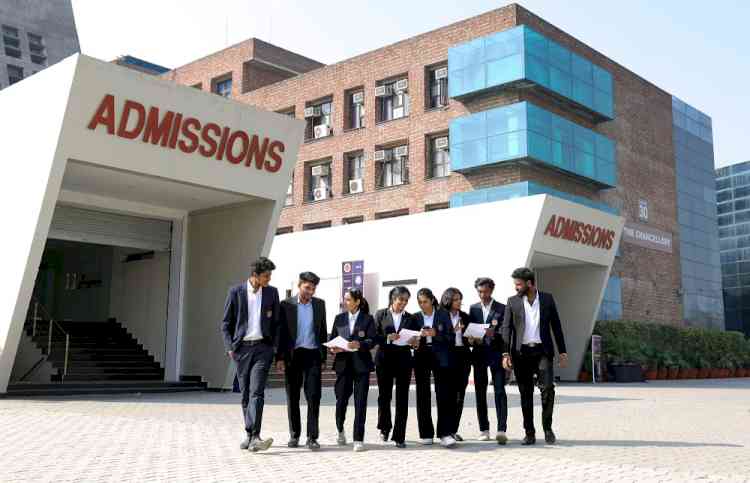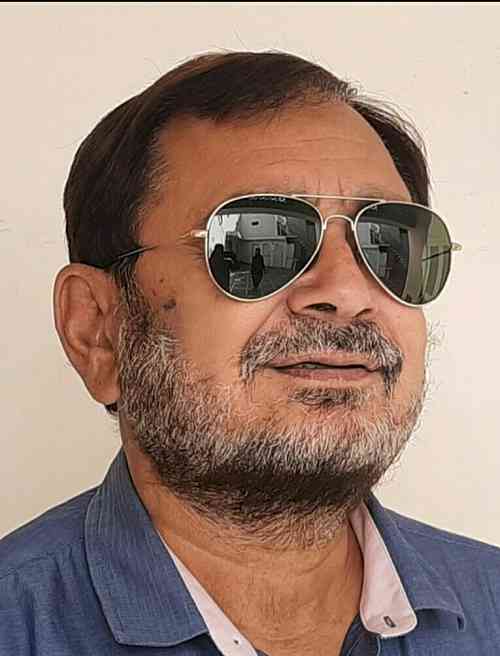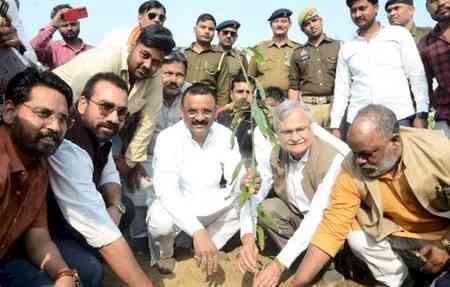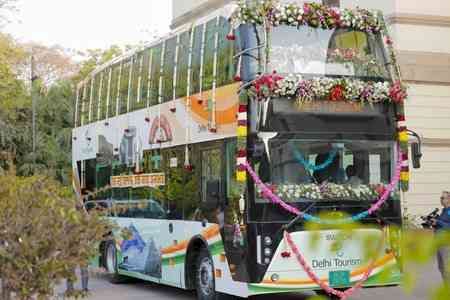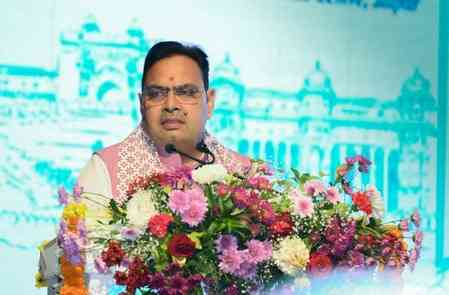Northern Region Science & Technology Cluster, PI-RAHI Hosts High-Level Stakeholder Meeting
Northern Region Science & Technology Cluster, PI-RAHI Hosts High-Level Stakeholder Meeting to Boost Science, Technology and Innovation Ecosystem in Jammu & Kashmir
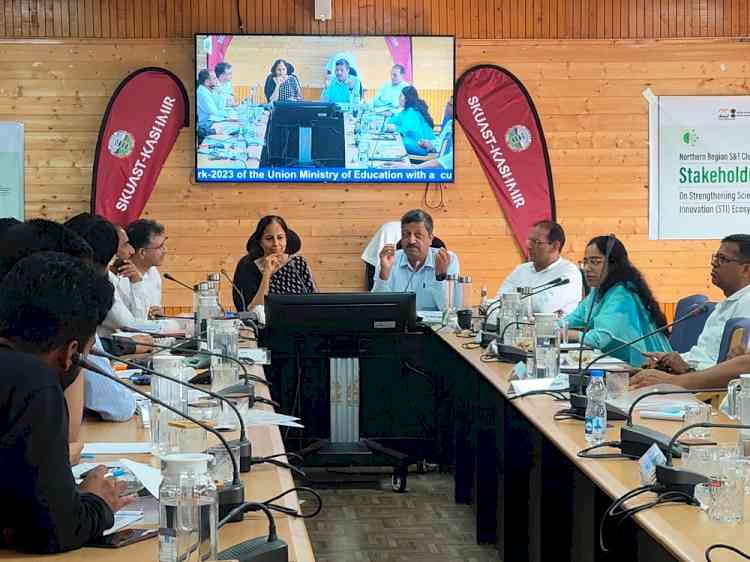
Chandigarh August 3, 2025: In a major step towards strengthening the Science, Technology, and Innovation (STI) ecosystem in Jammu & Kashmir, the Northern Region Science & Technology Cluster ,PI-RAHI convened two high-impact stakeholder meetings, on 28th July 2025 at IIT Jammu, and 30th July 2025 at Sher-e-Kashmir University of Agricultural Sciences and Technology of Kashmir(SKUAST-Kashmir). These meetings were organized in collaboration with the J&K Science, Technology & Innovation Council (JKSTIC), bringing together senior government officials, policymakers, academic leaders, scientists, industry representatives, startups, and grassroots innovators to co-develop a regional roadmap for inclusive innovation.
Anchored at Panjab University’s Sector 25 campus in Chandigarh, PI-RAHI (Panjab University–IIT Ropar Regional Accelerator for Holistic Innovations) operates under the Office of the Principal Scientific Adviser to the Government of India. With a mandate spanning Punjab, Haryana, Himachal Pradesh, J&K, and Chandigarh, the Cluster is focused on five thematic areas including Agriculture and food processing, Pharma, Healthcare & Medical devices, Waste Management and waste to wealth, Sustainable Mobility & Green Energy and Indigenous Technology development and optimization.
Both the Jammu and Kashmir editions were graced by Shri Satish Sharma, Hon’ble Minister for Food, Civil Supplies, IT, Science & Technology, and Transport, J&K, who emphasized the need to embed innovation into the fabric of development. “With initiatives like PI-RAHI, we now have the opportunity to build a science- and technology-powered Jammu & Kashmir. My Ministry will extend full support to ensure these programs succeed on the ground,” he affirmed.
Delivering the keynote address at IIT Jammu, Dr. Parvinder Maini, Scientific Secretary to the Principal Scientific Adviser, Government of India, highlighted the importance of regional clusters like PI-RAHI in unlocking innovation potential through structured, mission-driven collaborations. She underlined the Quadra Helix Model that integrates government, academia, industry, and civil society.Prof. Manoj Singh Gaur, Director, IIT Jammu, discussed the institute’s roadmap to become a deep-tech innovation hub for the region and expressed intent to collaborate with PI-RAHI in implementing national STI missions.
The Kashmir edition, hosted at SKUAST-Kashmir, was jointly inaugurated by Shri Sharma, Dr. Shahid Iqbal Choudhary, Secretary, Department of S&T, J&K, Prof. Nazir Ahmad Ganai, Vice Chancellor of SKUAST-K, and Dr. Jatinder Kaur Arora, Advisor, PI-RAHI. Dr. Choudhary emphasized the silent revolution taking place in J&K through science and technology and called for bridging the gaps between academia, government, and industry. Dr. Arora highlighted the need for a robust regional incubator ecosystem and underscored the importance of empowering local innovators through institutional support, capacity building, and challenge-based programs tailored to the region’s developmental priorities. Prof. Ganai extended full institutional support from SKUAST-K and urged more STI-led interventions tailored to the region’s agri-tech and rural priorities.
Prof. Renu Vig, Vice Chancellor of Panjab University, lauded the role of clusters in fostering innovation ecosystems.“PI-RAHI reflects Panjab University’s commitment to shaping India’s innovation frontier. Through strategic collaboration and targeted programs, the cluster is unlocking regional potential and setting new benchmarks for region-based science and technology.”she said.
The stakeholders Meet witnessed the launch of three flagship initiatives designed to catalyze STI-led development across the region including Innovation Ambassadors Program which is designed to create innovation leadership teams in universities comprising UG/PG students, PhD scholars, and faculty coordinators. These ambassadors will act as institutional liaisons to represent and promote innovation stories from J&K at national and international platforms. ;Grassroots Innovators of Northern India: A collaborative effort with the National Innovation Foundation (NIF) to scout, validate, and scale grassroots innovations emerging from the innovators of Northern India ; SPARKS J&K Chapter: A regional rollout of PI-RAHI’s Strategic Program for Accelerating Research and Knowledge Startups, now open to faculty innovators and startups working on technologies at TRL 4 and above. The program will provide financial and technical support to pilot solutions in areas like agriculture, waste-to-wealth, climate resilience, and rural health.
Roundtable discussions at both venues included key dignitaries at Jamsuch as Dr. Vishal Choudhary (Scientist F, OPSA), Prof. Rajat Sandhir (Director, PI-RAHI), Neha Arora (COO, PI-RAHI), Dr. Vivek Kumar (Scientist F, NIF), and faculty from IIT JammuAt SKUAST-K, senior official who led the dialogue included Dr. Neeraj Goel (Assistant Professor, IIT Ropar), Prof. Rohitashw Kumar (Associate Dean, SKUAST-K), Dr. Naveed H. Bhat (CEO, SKIIE), Bilal Ahmad (Joint Director, S&T Department), and Vikrant Dogra (Chairman, Unati Cooperative).
Roundtable discussions were held at both venues. The IIT Jammu roundtable featured senior officials including Dr. Jatinder Kaur Arora, Advisor, PI-RAHI , Dr. Parvinder Maini, Dr. Vishal Choudhary (OPSA), Prof. Rajat Sandhir (Director, PI-RAHI), Neha Arora (COO, PI-RAHI), Dr. Vivek Kumar (NIF), and Dr. Ambika Prasad Shah (IIT Jammu), and faculty from IIT Jammu and other leading institutes. At SKUAST-K, senior officials who led the roundtable included Prof. Nazir Ahmad Ganai, Prof. Rajat Sandhir (Director, PI-RAHI), Dr. Jatinder Kaur Arora(Advisor, PI-RAHI), Neha Arora (COO, PI-RAHI), Dr. Neeraj Goel (IIT Ropar), Prof. Rohitashw Kumar (SKUAST-K), Dr. Naveed Bhat (CEO, SKIIE), Bilal Ahmad (S&T Department), and Vikrant Dogra (Unati Cooperative).
The key outcomes from the meetings included a consensus on building a unified incubator network in J&K, mapping the STI ecosystem to identify gaps and opportunities, and prioritizing sector-specific innovation challenges. Capacity building for students, faculty, and grassroots innovators emerged as a central theme.
These deliberations mark a significant milestone in positioning Jammu & Kashmir as a future-ready region powered by science, technology, and inclusive innovation.



 City Air News
City Air News 
